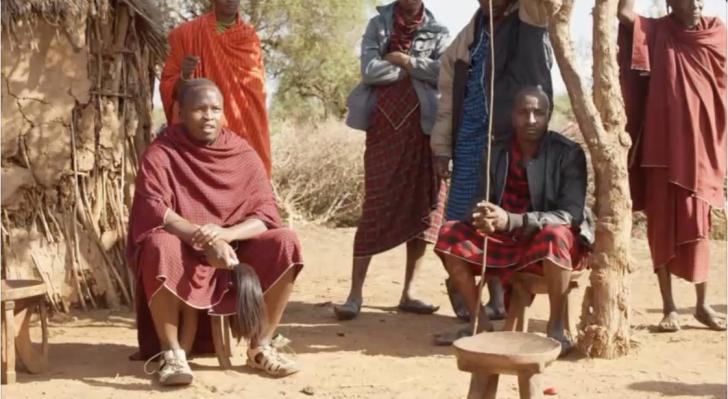News / Africa
International Hunting for Harmony - How a Tanzanian Village Balances Life and Wildlife
15 Aug 2025 at 21:48hrs |
172 Views

The midday sun hung low over Kimokoa Village, turning the dust into gold and the air into a shimmering haze.
In the distance, the flat, dry landscape of the Longido Game Control Area stretched endlessly, its acacia trees standing like sentinels guarding a land too parched for farming.
Here, life is lived close to the wild. Elephants wander near homesteads. Lions prowl the edges of grazing lands. The relationship between people and wildlife is as old as the soil beneath their feet and as delicate as the season's first rains.
"Hunting is a good practice for me and for my community because it balances the ecosystem," said Mr Ndayio Kimokoa, a lifelong resident of Kimokoa Village. He spoke surrounded by men and women from his tribe, who nodded quietly as the words left his lips.
"We love human life and we love wildlife, even elephant life," he continued. "But because we earn money from both international hunting and photographic tourism, we cannot put elephants above people."
For Kimokoa's people, international hunting is not a distant debate in a foreign parliament; it is a practical tool for survival and a means of preventing conflict between wildlife and people.
Problem animals, particularly elephants, can destroy crops in a single night, kill livestock, and even claim human lives.
In Kimokoa Village, international hunting brings peace between people and wildlife by helping to control dangerous animals.
"Whenever we see an elephant becoming a disaster in the community, it is better to remove it under the law - and that law is international hunting," said Mr Kimokoa.
This controlled wildlife management approach, he said, helps maintain peaceful coexistence.
International hunting not only removes dangerous animals but also channels revenue into community projects and conservation efforts. That money funds schools, clinics, and anti-poaching patrols.
"We will not allow poaching," he said firmly. "It is a human activity that is very bad for wildlife. But we will also not allow elephants to kill people and say nothing. Trophy hunting, to me, is a good thing."
In a land where farming offers little hope and the earth resists the plough and the growth of crops, income from hunting is not just a bonus – it is the lifeblood of the community.
For Mr Kimokoa, together with his family and other residents of Kimokoa Village, the benefits of international hunting strengthen their determination to protect the wildlife that shares their land.
About the writer: Emmanuel Koro is a Johannesburg-based, internationally award-winning journalist who writes independently on environmental and developmental issues.
In the distance, the flat, dry landscape of the Longido Game Control Area stretched endlessly, its acacia trees standing like sentinels guarding a land too parched for farming.
Here, life is lived close to the wild. Elephants wander near homesteads. Lions prowl the edges of grazing lands. The relationship between people and wildlife is as old as the soil beneath their feet and as delicate as the season's first rains.
"Hunting is a good practice for me and for my community because it balances the ecosystem," said Mr Ndayio Kimokoa, a lifelong resident of Kimokoa Village. He spoke surrounded by men and women from his tribe, who nodded quietly as the words left his lips.
"We love human life and we love wildlife, even elephant life," he continued. "But because we earn money from both international hunting and photographic tourism, we cannot put elephants above people."
For Kimokoa's people, international hunting is not a distant debate in a foreign parliament; it is a practical tool for survival and a means of preventing conflict between wildlife and people.
Problem animals, particularly elephants, can destroy crops in a single night, kill livestock, and even claim human lives.
In Kimokoa Village, international hunting brings peace between people and wildlife by helping to control dangerous animals.
"Whenever we see an elephant becoming a disaster in the community, it is better to remove it under the law - and that law is international hunting," said Mr Kimokoa.
This controlled wildlife management approach, he said, helps maintain peaceful coexistence.
International hunting not only removes dangerous animals but also channels revenue into community projects and conservation efforts. That money funds schools, clinics, and anti-poaching patrols.
"We will not allow poaching," he said firmly. "It is a human activity that is very bad for wildlife. But we will also not allow elephants to kill people and say nothing. Trophy hunting, to me, is a good thing."
In a land where farming offers little hope and the earth resists the plough and the growth of crops, income from hunting is not just a bonus – it is the lifeblood of the community.
For Mr Kimokoa, together with his family and other residents of Kimokoa Village, the benefits of international hunting strengthen their determination to protect the wildlife that shares their land.
About the writer: Emmanuel Koro is a Johannesburg-based, internationally award-winning journalist who writes independently on environmental and developmental issues.
Source - Emmanuel Koro
Join the discussion
Loading comments…






























